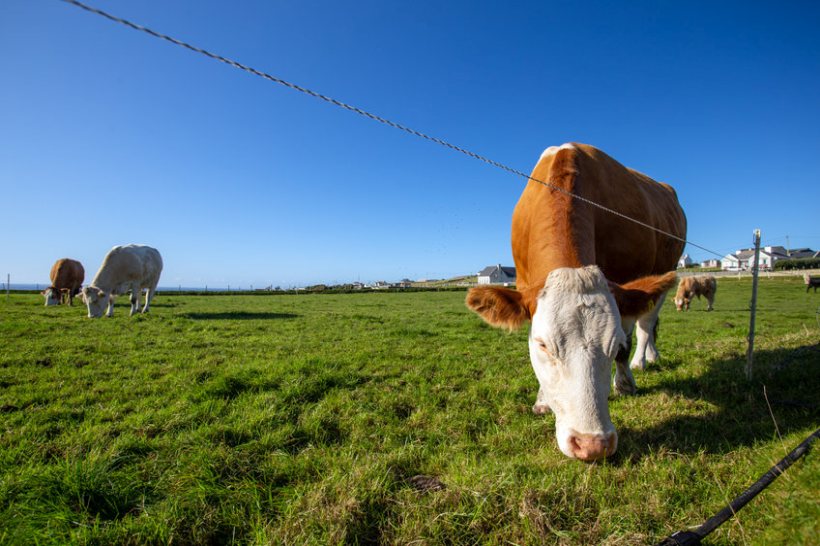
New climate change legislation could be a 'severe setback' for Northern Irish farmers, industry groups have warned after MLAs voted to adopt a target of net zero by 2050.
The majority of MLAs voted for the new target to be set within the Executive’s Climate Change Bill during the NI Assembly at Stormont on Tuesday.
Greens, Sinn Féin, the Alliance Party, SDLP and a number of independents voted in favour.
Northern Ireland is the only part of the UK without its own climate change laws, but the agri-food sector is concerned about its potential impact.
The Ulster Farmers' Union (UFU) said it was 'deeply disappointed' by the outcome of the vote.
It added that the 2050 target "goes against the advice of the experts on the Climate Change Committee (CCC)".
The CCC originally highlighted that this target would not be achievable for NI, and would result in at least a 50 percent reduction in livestock numbers.
Commenting on the vote's result, UFU president Victor Chestnutt said: “We need to stop global warming, but a net zero target will not do this.
"It is unrealistic and can only be met by cutting livestock numbers on local farms, and even by doing that, it would still not solve climate change.
"Instead, it will export our food production overseas to meet consumer demand for meat and dairy products, where emissions are higher and standards are lower."
Mr Chestnutt said that while there was still a long way to go to get 'appropriate' climate change legislation in place, the vote was a 'severe setback' for the sector.
"We will continue to work effortlessly, engaging with all MLAs to find a solution that works for farming, securing a bright future."
Northern Ireland's agriculture minister Edwin Poots has also expressed concern following the vote at Stormont.
He said the push to net zero within the 2050 timeframe would have "profound and irreversible consequences" for the agri-food sector.
The sector, one of the biggest in Northern Ireland, employs almost 100,000 people and generates £5 billion for the local economy.
“I know the sector fully recognises the climate challenges we face and they have already put a range of steps in place to helps us tackle the issue together," Mr Poots said.
"There is widespread acceptance of the need to minimise the impacts of climate change in both the agriculture and environment sectors – but this must not be to the detriment of one particular sector."
He added: "In the meantime, I will not sit back and wait. I’ve already introduced significant policies and announced consultations that help in our fight against climate change.
"Since I launched the Forest for Our Future programme, over 1.75 million trees have been planted and we will shortly be launching a Peatlands Strategy.
"All of which will help to sequester carbon, reduce emissions and ensure that we have a more resilient environment."
